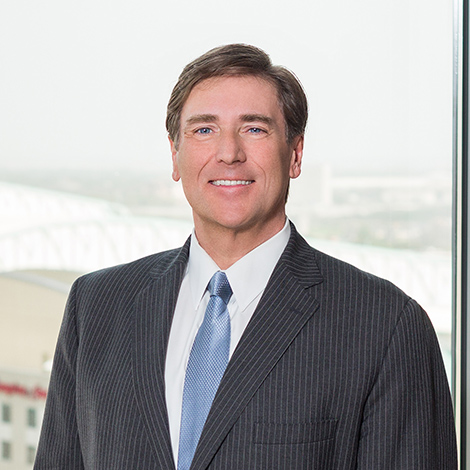Social media platforms like Facebook and Twitter typically allow users to delete unwanted commentary or block others with whom they disagree from posting on the user’s page or post. The subject matter of the offending material often runs the gamut between weighty issues of politics (e.g., Trump is unfit for office) and more personal gripes (e.g., people who drive slow in the left lane should have their licenses revoked). Whether the censoring action is permitted under the First Amendment depends on essentially two questions: (1) who is doing the deleting or blocking, and (2) on what basis? The public/private distinction routinely drawn in First Amendment jurisprudence drives the analysis. If the actor is a public entity or official and the blocked commentary occurs in a public forum and results in viewpoint discrimination, the action runs afoul of the First Amendment. If, however, the actor is a purely private entity or individual, the forum and subject matter of the speech become largely irrelevant – the First Amendment simply does not apply to censorship by non-state actors regardless of the forum or content of the speech.
While this all seems simple enough, drawing lines for social media has proven difficult for the courts and policy makers. On May 23, 2018, a federal judge in New York ruled that President Trump violated the First Amendment by the practice of blocking critics from his @realDonaldTrump Twitter account.[1] The decision rested on the well-settled principle that the federal government cannot participate in viewpoint discrimination in a public forum based on the content of speech, and in this instance the government exerted sufficient control over the account:
“The viewpoint-based exclusion of the individual plaintiffs from that designated public forum is proscribed by the First Amendment and cannot be justified by the President’s personal First Amendment interests.”
What is not well settled is the application of this principle to an individual—even a public official—ostensibly acting “on their own” using a personal social media account without the imprimatur of government control or action. This question was squarely presented recently when Governor Matt Bevin of Kentucky was sued for blocking critics on his Facebook and Twitter accounts.[2] In April, a federal judge in Kentucky denied the ACLU’s request for a preliminary injunction to stop such action, rejecting the argument that the social media sites were public forums. Instead, the accounts were “personal” and, thus, Governor Bevin was under no obligation to allow the public to comment to him through the sites. The Second Circuit Court of Appeals will soon struggle with this issue in the Trump case, since the U.S. Department of Justice has appealed the ruling and will likely make the same argument made by the defense in the Bevin case.
The effects of the ultimate decision in the Trump case could be far-reaching, particularly if it makes it to the U.S. Supreme Court. All 50 governors and most members of Congress have established a Twitter account to communicate with their constituents – some more “official” looking than others. And most publicly funded institutions, including school systems, would also be affected. For example, on May 14, 2018, PETA (People for the Ethical Treatment of Animals) sued the President of Texas A&M University (TAMU) for allegedly violating PETA’s First Amendment rights by deleting comments posted to the TAMU Facebook page and blocking additional comments that were critical of TAMU’s dog laboratory practices.[3] And a former Georgia school teacher is expected to ask the U.S. Supreme Court to review a recent Georgia Supreme Court ruling that dismissed her claim that racially-charged Facebook comments resulted in adverse employment action that forced her to resign.[4]
While these stories unfold in the public sphere, private (and privately employed) individuals should remember that the First Amendment generally does not apply to their speech on social media; thus, others can freely discriminate on the basis of its content. And the discrimination goes far beyond Facebook friends deleting hostile political commentary or blocking a user for being foul-mouthed. For example, if an employee makes social media postings that violate a private employer’s otherwise valid policies—unrelated to working conditions—the employee can be terminated. This can happen for obvious breaches such as misappropriation of trade secrets, copyrights, and trademarks, but also for less obvious conduct such as boorish or offensive comments or photographs that may injure the reputation of their employer. Most of us are familiar with dismissals of high profile personalities for this very reason – saying stupid things on social media that reflected poorly on their employer, including most recently Roseanne Barr. Simply put, if your speech violates your employer’s legitimate policies or injures its reputation in the marketplace, you could lose your job and neither the courts nor the government will help you.[5]
Fairly drastic protective measures are being taken to avoid the “wild west” nature of social media. For example, some engaged couples are including social media clauses in pre-nuptial agreements. The intent behind these clauses is to contractually restrict the ability of an estranged spouse to speak a bit too freely about the relationship through social media like Facebook. These restrictions can prohibit posting of photographs, discussion of private details of the relationship, or anything that could harm someone’s reputation, cause them to lose their job, or suffer humiliation and embarrassment. Individuals and companies are generally free to contractually restrict their speech in this manner, including editing, deleting, or blocking social media postings. Since the government cannot – consistent with the First Amendment – preemptively regulate what private individuals can post to social media, it is largely left up to individuals to guard their privacy and reputations in the online world the best they can.
[1] See Knight First Amendment Institute at Columbia University v. Trump, 17 Civ. 5205 (S.D.N.Y. May 23, 2018)
[2] See Morgan v. Bevin, 3:17-cv-00060-GFVT (E.D. Ky 2017)
[3] See People for the Ethical Treatment of Animals, Inc. v. Young, CA No. 4:18cv1547 (S.D. Tex. May 14, 2018).
[4] See Tucker v. Atwater, Cause No. S18C0437 (Ga. Sup. Ct. June 4, 2018). While the Georgia Supreme Court denied the petition for certiorari, Justice Nels Peterson wrote a special concurrence, joined by Chief Justice P. Harris Hines and Justice Keith Blackwell, to express concern “about just how far the First Amendment bends in allowing government to punish its employees for the viewpoints they communicate in their private lives.”
[5] There are exceptions, including speech protected by the National Labor Relations Act that constitutes “concerted activity” to organize co-workers for wage or workplace condition changes, and retaliation for speech reporting discrimination, harassment, or unsafe working conditions. See, e.g., NLRB v. Pier Sixty, LLC, 2017 WL 1445028 (2nd Cir. Apr. 21, 2017).
 Meet John
Meet John
John K. Edwards is an experienced trial lawyer who routinely represents clients in complex commercial and tort-based litigation—both trial and appellate—in state and federal courts. John brings value to his clients through effective advocacy skills, sound legal analysis, good judgment, and adherence to the highest standards of professionalism. As a litigator for over 20 years, John has tried numerous cases to successful verdicts for both plaintiffs and defendants. He has resolved many more cases through early dismissal, summary judgments, and favorable settlements. John is licensed to practice law in Texas and Florida and is also admitted to the bar of all Texas federal district courts, the Fifth and Eleventh Circuit Courts of Appeal, and the United States Supreme Court.
The opinions expressed are strictly those of the author and do not necessarily reflect the views of the firm, its clients, or any of its or their respective affiliates. This article is for informational purposes only and does not constitute legal advice.

